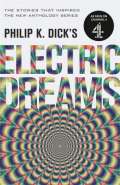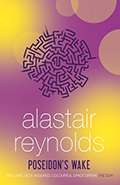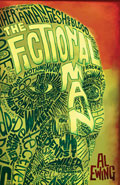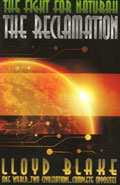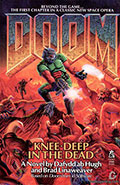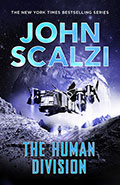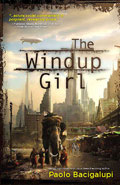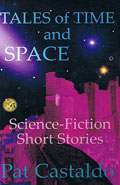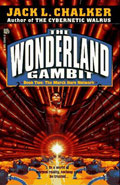Blackfish City
By Sam Miller
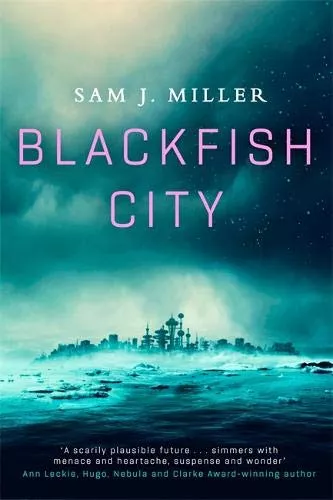
- Blackfish City
-
Author: Sam Miller
-
Publisher: Harper Collins
- ISBN: 9780062684820
- Published: April 2018
- Pages: 336
- Format reviewed: Hardback
- Review date: 25/02/2019
- Language: English
One of the many hats I wear is that of a professional software engineer. As a junior professional software engineer, I experienced acute imposter syndrome. It didn’t help that I was surrounded by people who had been engineering software for years, even decades, longer than I had.
I resolved my plight by doing what all software engineers do—I broke down the problems facing me into bite-sized, manageable chunks and dealt with them one at a time. I learned how to ask for help in the right ways when I ran into a problem that couldn’t be solved with code, a problem that needed a skillset from somewhere else in the office. And most importantly, over time, I learned how to empathize with members of those other disciplines, to try to see problems their way as well as my own.
Effective team software engineering, I discovered, is also effective team leadership, and with leadership comes power, and with power comes a host of new hazards to be navigated.
Blackfish City is a novel about power, its application, and about the empathy required to use it well.
The novel is set in the twenty-second century, a time when flooding and political upheaval have destabilized most of the globe. Many new polities have struck up in the form of floating, ocean-bound cities. The city of Qaanaaq is one such city, situated off the coast of Greenland in the now iceless Arctic Ocean. It was built by a consortium of Swedish, Thai, and Chinese business interests and is politically autonomous. Composed of eight arms attached to a central hub, each arm has a “manager,” something like a mayor. But, as becomes clear early in the novel, the manager has no real political power. Real power lies with an eerily secretive group called “the shareholders,” who enforce all real policy through a complex system of AI agents running Qaanaaq’s computer systems.
The novel jumps between four points of view: Fill, Ankit, Kaev, and Soq. In the beginning, the relationship between these characters is unclear, and Miller uses the familiar device of having a chance encounter from one character’s perspective be repeated when the other character’s turn comes up, but from their point of view. As the characters’ threads come together, the plots of each character converge into a single narrative track, although the point of view transitions continue right up to the very end of the novel.
Stylistically, the novel starts well. Miller uses the device of a subversive podcast, City Without a Map, to do the heavy lifting of world-building exposition in a more or less natural way. His prose is complex while maintaining clarity. There’s an imaginative pull to his universe, strongly felt in the first hundred pages or so, which is also present in the novel’s blurb and is what attracted this reader to the book.
For all those traits, I’m less certain overall of how well Blackfish City achieves what it sets out to do, and additionally, how well it fits the genre of science fiction.
Fitting the Genre
Science fiction is a notoriously difficult genre to pin down. I dove into the topic expecting to spend a few days of research on it, and what I discovered was enormous complexity and lots of competing ideas that could easily fill months’ worth of research.
What most people seem to agree on, though, is some variation on the idea that science fiction’s goal is to draw the reader’s attention to elements of the real world that they may not have noticed or been aware of, that is to say, science fiction provides a lens for the reader to see the real world in a new way.
For all of the imaginative flare of Blackfish City, when I dug into its individual elements, I found only a future-based mish-mash simulacrum of the modern day and recent past. For example, an epidemic called “the breaks,” a fatal, sexually-transmitted disease, mirrors the real-world HIV crisis of the 1980’s exactly, complete with rampaging evangelicals stymying government solutions and shady medical organizations suppressing research on potential cures.
In all of its world details, from the constant influx of various immigrant groups, its reliance on capital as a form of power, the ineffectual bureaucracy of its governmental systems, Qaanaaq is, essentially, the United States of America, and it embodies a swath of selected social and political problems, which have manifested in the real-world USA at various times over the last forty years.
At the novel’s conclusion, I found myself wondering if the political and social presentation of Qaanaaq had taught me anything about real world political and social systems of my country, whether or not Qaanaaq provided me with a new lens, through which I could understand my real world. I am still not certain that it did, and I am suspicious of the way it has rolled a swath of temporally divergent problems into a single fictional time and place. To give one concrete example, I am uncertain how the uniquely American brand of Christian fundamentalism survived for over a century unchanged to reach Qaanaaq and managed to, once again, become a significant threat to the welfare of LGBT individuals in the world presented by the novel.
That said, even if the city itself is nothing more than a dissonant amalgam of various American problems, I did find that the novel presented a coherent theme—how to use power well.
The Exercise of Power and the Power of Empathy
The primary antagonists of the novel are a shareholder and a crime lord. Although ostensibly antagonistic toward one another, the plot shows that their fear is largely driven by fear of the other stealing their power, a fear which is unjustified on either side. They have no real quarrel with one another based on any legitimate grievance.
Both are presented as failed leaders. The shareholder was willing to do anything, including vastly immoral things, in order to build the financial capital to invest in Qaanaaq’s construction and guarantee his own comfortable safety within it. The crime lord has grown so accustomed to a system in which one much climb over corpses to advance her own agenda, that piling up corpses and advancing her agenda have become ends rather than means.
Blackfish City suggests a different solution to the problem of wielding power by way of the epidemic called “the breaks.” The breaks floods its hosts with the memories of every person infected by that same strain prior. Vivid hallucinations eventually overwhelm the host’s mind, concluding in a fatal mental break with reality.
The novel’s conclusion suggests the possibility of a treatment that would allow the infected to fully manage the breaks. One infected character reflects on the ability that the disease gives them to organize, incorporate, and understand others’ points of view. This character, initially convinced that the only way to deal with Qaanaaq was to destroy it completely, rather decides that, with their newfound capacity for empathy (in the form of the direct experiences provided by the breaks), they would be capable of wielding power in a way that would avoid the pitfalls of both the shareholder and the crime lord.
Concluding Thoughts
I find Blackfish City to be a problematic novel.
Qaanaaq, as an amalgam of past and present American political and social problem all rolled into a single fictional time and place, feels less like it is teaching me something about those problems and more like a furious polemic against the groups it feels are responsible for those problems (Miller spells it out literally: shareholders and crime lords).
The initial imaginative zest that opens the novel, in the form of many perspectives on Qaanaaq and the four characters’ interwoven relationships, quickly falls away into a single plot thread and action antics. The multiple points of view persist well after their worth degrades relative to the weight of their stylistic complexity.
I also don’t know how I feel about the novel’s metaphor for the HIV crisis being the resolution to its device for narrative tension, its recasting of the disease as a boon rather than a malady.
I really wanted to like Blackfish City, and I have to admit that the major themes of the use of power and the importance of empathy are well realized, but the aforementioned issues spoiled this reader’s potential enjoyment.
Written on 25th February 2019 by Matt Buscemi.
